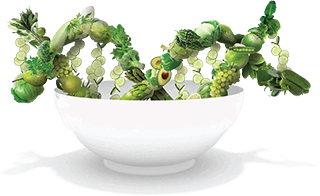Learn how nutrition can help boost your immune system. This is the first in a series about how nutrition affects your immune system. In the first episode, I discuss Vitamin C. Watch the video here, or read about it below.
A lot of people are talking about nutrition, supplements in particular, and immunity. This week we’ll dive into Vitamin C, which is well known for being a potent antioxidant, an anti-inflammatory and has overall positive effects on skin health and immune function. Studies right now are looking at Vitamin C, among some other supplements, in alleviating respiratory distress and getting COVID-19 patients off ventilators. It’s working.
We can’t produce or store vitamin C so it’s essential to consume it regularly in sufficient amounts.
Where can we get it? The best food sources for Vitamin C are found mostly in fruits and vegetables. One serving of fruit or vegetables can clock in anywhere from 30% to over 500% of your daily needs. Supplements usually give you a lot more – a 250mg pill will supply about 275% of your daily needs. Most people take 500 or 1000mg pills or chewables.
Are supplements dangerous? That depends. It’s important to understand your specific risks because 2000mg or more on a daily basis can affect the kidneys or may cause GI upset.
The bigger picture? Vitamin C has a tolerance dose effect. Our bodies get used to the dose of the Vitamin C we take in. If we eat 100mg our bodies adapt to needing those 100mg. The same is true for 2000mg or higher, but higher dosing on a daily basis can backfire on you.
Vitamin C is well known for exerting its best effect when you actually need it. For instance, giving it to patients just after an elective surgery helps with the healing process. The best benefits from high doses are for 7-14 days. One of the keys to its success is that there wasn’t any high dose supplementation before the surgery.
Take the analogy of an antibiotic, for example. Would you take an antibiotic for 6-12 months in case you were going to get sick and need it? No, you wouldn’t. Antibiotics do their best job when you use them infrequently and when you actually need them.
So, to make the most of Vitamin C on a daily basis for immune support while preserving its use should you need it during times of illness, consume food sources such as 5-8 fruit and vegetable servings daily and ease off megadosing (2000mg or more).
The second in the series, about zinc, can be found here.
In good health,

